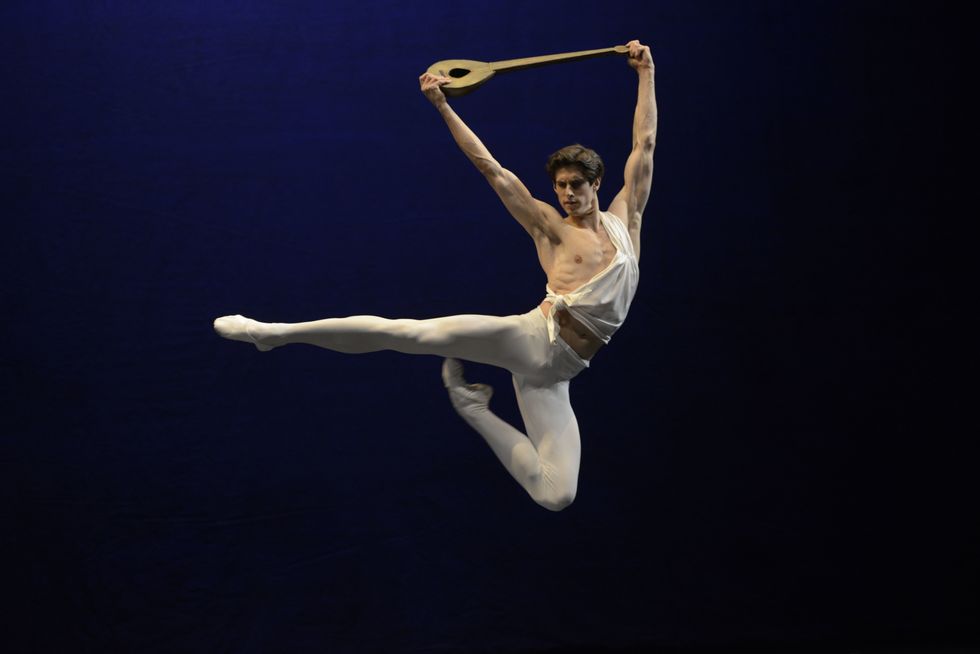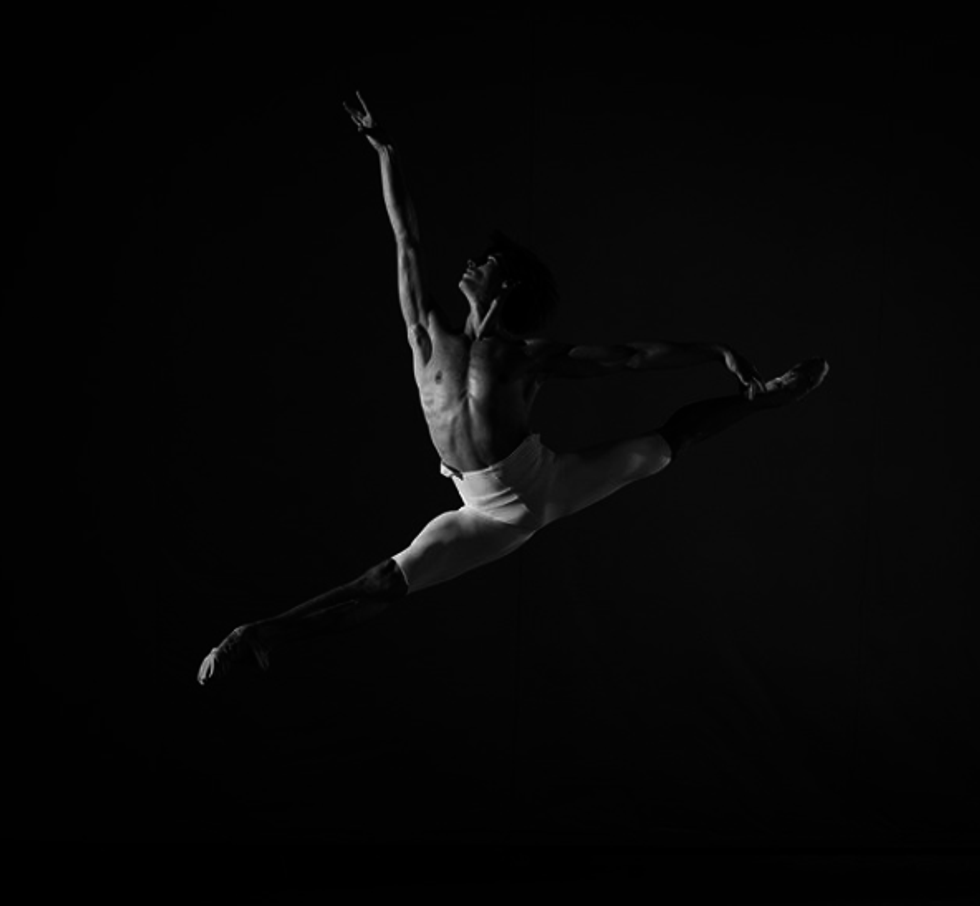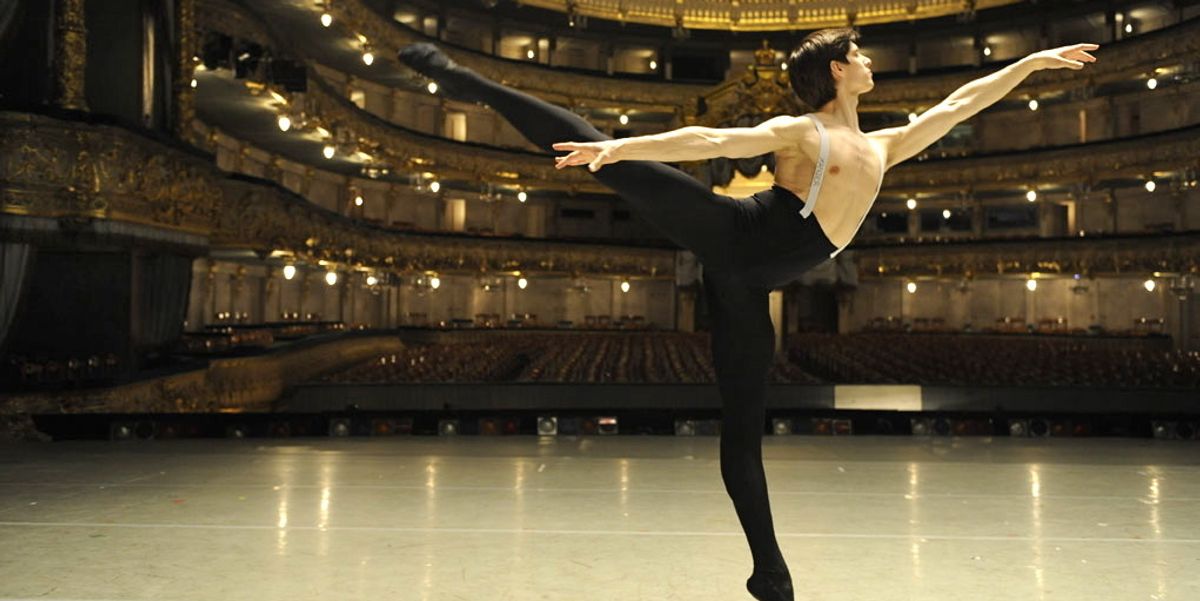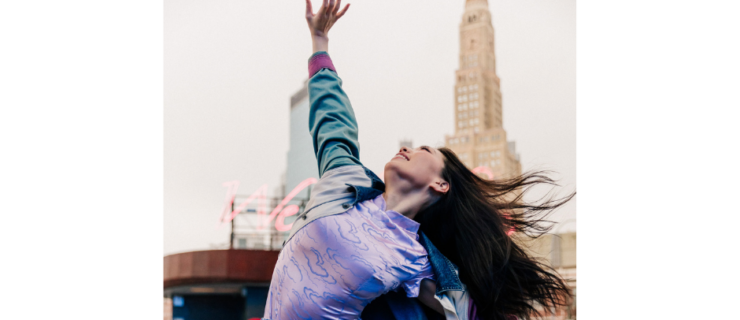Xander Parish: "If You Want to Do Ballet, Where Else Better Than Russia?"
A kindhearted British bloke with feet that ballerinas would envy, Xander Parish isn’t a self-promoting celebrity or a social media whiz. He is more like your next-door neighbor, but with one caveat: He has loads of talent. His elastic muscles boast an endless plié that creates soundless jumps and textbook-perfect lines. Combine that with strong partnering skills and polished dramatic delivery, and Parish’s slow rise to fame as a Mariinsky Ballet principal has at long last earned him well-deserved recognition.
How did you start dancing?
I used to play with my trucks under the piano at my sister’s ballet classes. When I watched her doing a show, I asked why I was just watching—I wanted to do it too.
So I trained in Hull from 8 to 11. After The Royal Ballet summer school, I was in the Junior Associates program in Leeds, then moved to White Lodge. I found it really hard; I was homesick, and I liked being onstage but didn’t know much about technique.

Parish as Apollo. Photo by Valentin Baranovsky, courtesy Mariinsky Ballet
What was it like starting in The Royal Ballet?
In school, my year of boys was very strong and only three of us were offered contracts at The Royal Ballet. I was surprised I was included because I was not the best. The other two were Liam Scarlett, now a famous choreographer, and William Moore, who turned down the offer and went to Stuttgart instead. William was smart; he didn’t hang around for corps work and became principal quite quickly.
I was honored to be given a place in The Royal, but for me it was a slog—a lot of tedious rehearsals walking around not doing much, certainly nothing worth eight years of training.
Everything changed when Yuri Fateyev came to teach?
Yes. The Royal doesn’t have a lot of their own coaches, so at any given moment there will be a guest teacher for two to three weeks. Yuri came and gave me a lot of attention in class. I wasn’t used to much attention—I was pretty much ignored—so I thought it was great. One day after class I asked if he’d correct me if I showed him some jumps. He agreed, and we jumped for like half an hour.
Six months after he left, he became director at the Mariinsky and wrote offering me a position. I didn’t accept at first. I thought it must be a miscommunication, because why on earth would he want me?
One year later when the company was in London, he asked if I’d take class. He offered me a job again. I didn’t know why he wanted me to join. He said, “You’re a tall guy, a hard worker.” It wasn’t because of my amazing ability; it was because of my attitude. He liked that I had a good body and feet, and he could work with that (so he told me later, anyway).

Photo by Andrej Uspenski, via
How was the transition to Russia?
There was a lot to take in when I first arrived. It was the middle of winter; I’d never been anywhere so cold in my life. I didn’t speak a word of Russian. It was like stepping onto a foreign planet. It excited me that no one from the UK had gone into Russian ballet, so it felt like I was a sort of Arctic explorer. I’d wanted to do something different and I was doing nothing of significance in London, so even if I were to fail, I’d have had the experience.
Have any experiences at the Mariinsky changed you as a dancer?
I was starting from scratch, really. Initially Yuri was my coach. Three weeks into my first season I danced my first solo in Raymonda and a few weeks later my first principal role, the Poet in Chopiniana. It was a huge leap, and I’m surprised I landed on both feet, both literally and figuratively! I was about 23 or 24 years old, and that’s jolly late to become a soloist.
And you were promoted while on tour in London.
To return to the stage I left because I didn’t get to do anything, and to be promoted while there, it was wonderful. I think Yuri did it on purpose because it was significant for me and for him: It’s where we first met. It made sense to give me the promotion back at home with my parents in the audience. It makes me smile. My last role on that stage was as a mother pig wearing a fat suit in The Tales of Beatrix Potter and I’d come back as Siegfried in Swan Lake.
You’re the first British principal ever at the Mariinsky. How does that feel?
I was the first British dancer to join the company at all. I hope it will inspire other dancers to consider Russia as an option. If you want to do ballet, where else better than Russia? Right now, the more we can use the arts to help soothe the tense political situation and strengthen ties between our countries, the better.
Does this promotion change your daily life?
Not at all. The biggest change was becoming a second soloist, because I stopped doing corps work. But the titles of first/second soloist and principal are just ranks within the structure whereby they pay you.
Do you see yourself in Russia long-term?
Certainly for my dancing career. Now that I’m a principal, I want to make the most of it. I have the title now, but I have to keep training to reach the level. I’m still trying to learn Russian, as well.
Have you been to the Russian banya?
Yes, several times. The banya is like a rite of passage. I hate cold water, but to be in a steamy, hot sauna and then jump into freezing water, it does something for you. I’m not a big drinker, but there’s always alcohol involved with the Russians. And those silly hats are brilliant. You feel like a character from a cartoon.
How do you feel about your fangirls on social media?
I wasn’t aware I had any, but I’d say the more the merrier. Bring it on. [Laughs.] Particularly in ballet today, it’s important to sell your own brand. I use Instagram because I like to create photographs. My friend gave me an old Nikon, and I take pictures of colleagues backstage in black-and-white. Sadly, they get fewer “likes” than me doing a split jump.
With all of this good fortune, what’s your next dream?
To go home—not to leave the Mariinsky, but to have a relationship with The Royal Ballet. I’d like to do what David Hallberg did with ABT and the Bolshoi, to make the most of my British roots as well as my Russian ones. And I think my mom and dad would appreciate it.




